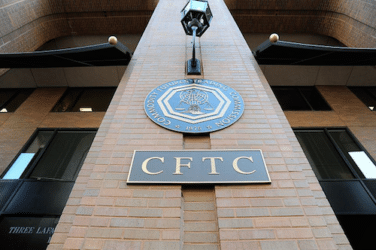

Hester Peirce, commissioner at the Securities and Exchange Commission, said the US regulator proposed changes of its rules that define exchanges could affect decentralized finance (DeFi) and new trading venues.
DeFi allows customers to recreate some traditional financial services in a decentralized way on a blockchain using smart contracts – such as lending their assets
On 26 January 2022 the SEC said it is considering modernizing its rules related to the definition of an exchange. Gary Gensler, chairman of the SEC, said in a statement: “Over the decades since Congress put in place the definition of an exchange, there have been many changes to platforms — in particular, that they are increasingly electronified.”
2⃣ amendments to enhance investor protections & cybersecurity for Alternative Trading Systems (ATS) that trade Treasuries & other government securities
My full statement ⬇️ https://t.co/eMLbyqEOTL pic.twitter.com/WNmIOCJdUg
— Gary Gensler (@GaryGensler) January 26, 2022
Peirce spoke at the Finance on the Blockchain forum hosted by at the Arca, an asset management firm in digital assets, on 27 January 2022. The SEC commissioner said it it is really important for people in the crypto space who are operating, or planning to set up, any kind trading venue to look at the proposals despite its daunting length.
“Please take a look at it with an eye toward thinking about how it might apply and please consider helping us think through those issues by writing a comment letter,” she added. “The proposal would redefine an exchange so it is really important to get engagement from people all across the crypto and traditional markets.”
Grab a cup of ☕️ and participate in the conversation today on Twitter by using #FOTB2022 ?️ https://t.co/NpNyTtgBXb
— Arca (@arca) January 27, 2022
She continued there is still a lot of uncertainty around how the SEC is thinking about digital asset securities and there are even different points of view within the regulator. She believes tokens themselves are not securities but the broader securities offering is part of an investment contract.
“The token itself might not be properly considered to be a security, which is one of the reasons why I proposed a safe harbour which would allow people to not have to make that determination at the outset,” said Peirce. “We’d give it three-year trial period.”
Given the ambiguity, Peirce thinks it would make sense for the SEC to be little bit more proactive. She said that it is understandable that the US regulatory system, which has a long history and is more developed, takes a longer time to accommodate something new but that the country risks losing real innovation and cutting off US citizens from opportunities.
She had voted on the proposal to amend Regulation ATS. In her dissenting statement Pierce said the proposal went far beyond the scope of the concept release that was issued with the initial September 2020 proposal.
Thoughts on today's Reg ATS proposal: It raises a lot of issues worthy of careful consideration, but it doesn't give the public a long enough comment period: https://t.co/9dt5g969zd
— Hester Peirce (@HesterPeirce) January 26, 2022
“What the staff is recommending for our consideration is an expansion in the definition of exchange that would apply to any trading venue, including so-called communication protocol systems, for any type of security, not just for government or fixed-income securities,” she added. “This change could deter innovation and dissuade new entrants from entering into the market for trading venues and execution services, but communication protocol services have become more sophisticated and now play a significant role in the trading of certain types of securities.”
Shane Swanson, an equities and financial technology expert in consultancy Coalition Greenwich’s market structure and technology practice, said in a blog: “In its discussion, the SEC also notes that there are no exemptions due to how “thinly traded or novel a security may be” (emphasis added). It is apparent that this is yet another shot across the bow for crypto exchanges and fixed-income trading systems: If you are trading what the SEC considers to be a security, they expect you to register as an exchange or an ATS (whether or not this proposal goes through final approval).”
*New Blog* Expanding the Scope of "Exchange" – The SEC's Latest Proposal https://t.co/ayKLdN9TvN via @CoalitionGrnwch by @GreenwichShane
— Coalition Greenwich (a division of CRISIL) (@CoalitionGrnwch) January 27, 2022
Pat LaVecchia, chief executive of Oasis Pro Markets, said on a panel at the Arca panel: “The greyness of the regulations is going to continue for the next two to three years.”
Oasis Pro Markets said it is the first US-regulated alternative trading system (ATS) registered to allow its subscribers to trade digital securities and make payment for those digital securities in either digital cash using stable coins or fiat currency. The firm’s approach was to be regulatory compliant from the outset.
“We believed that eventually the SEC, CFTC, FINRA and other governing bodies were going to have their fingerprints all over this space,” he said. “We welcome it.”
Sean Bowden, chief executive and CCO of Symbridge Capital, said on the panel: “As the as the industry continues to develop and mature, we look forward to regulations evolving to better leverage the benefits of blockchain technology, ultimately getting to on-chain settlement.”
On January 27 2022 Symbridge Capital was granted membership approval by FINRA for its broker-dealer that will operate an ATS for trading digital asset securities, which will have ownership information tracked using blockchain technology. The firm said in a statement that Symbridge Capital’s ATS is scheduled to launch in the coming months and initial capabilities will include operating an issuance platform for the private placement of securities and facilitating secondary trading in a range of digital asset securities.
1/7 We’re thrilled to announce that Gemini Galactic Markets has received approval from @FINRA to operate a broker-dealer registered with the SEC and is officially a FINRA member (https://t.co/hynUc3VGdK)https://t.co/2mEMTdXFn3
— Gemini (@Gemini) January 26, 2022
On the previous day Gemini Galactic Markets also received approval as registration as a broker-dealer and ATS that will enable its subscribers to trade in digital asset securities.
Richard Johnson, chief executive and founder of Texture Capital, said on the panel that the SEC’s new proposal looks to change the definition of exchanges from purely a marketplace to a communications protocol.
“This is what a decentralized exchange is, so lots of people in DeFi are not going to like that,” he added. “However, if that’s the way it goes down the we are ready for it.”
Texture Capital is an SEC-registered broker-dealer focussed on the issuance and trading of digital securities in private markets,
Looking forward to @arca Finance on the Blockchain event where I will be participating on a panel: "ATS Leaders – The Future of Digital Exchange" with @INX_Group @tZERO@Securitize @OasisProMarkets @symbridge @DantesOutlookhttps://t.co/InBMEj3vWG#Blockchain #FOTB2022 pic.twitter.com/FsJMcPgCFB
— Richard Johnson (@_richjohnson) January 13, 2022
Bitcoin ETFs
The SEC has approved bitcoin futures exchange-traded funds but not spot bitcoin ETFs, despite their approval in other jurisdictions such as Canada. Peirce explained that the SEC has disapproved of the lack of a market of sufficient size in spot bitcoin where there is a surveillance agreement.
Peirce said: “The bitcoin exchange-traded product should have been greenlit a long time ago. We are depriving investors of access to a product that might actually be a preferable approach to getting exposure to the spot bitcoin.”
She continued that the rationale being applying seems crypto-specific rationale.
“It’s quite frustrating to me when the experience in other countries should give us more comfort that they can trade without posing problems to the market,” Peirce added.
Fidelity files for Blockchain ETF a mere hours after spot bitcoin denial. Blackrock also filed for one last week. This category is getting flooded w supply, already has super high product/asset ratio. https://t.co/Bqp7foxsv8
— Eric Balchunas (@EricBalchunas) January 27, 2022






